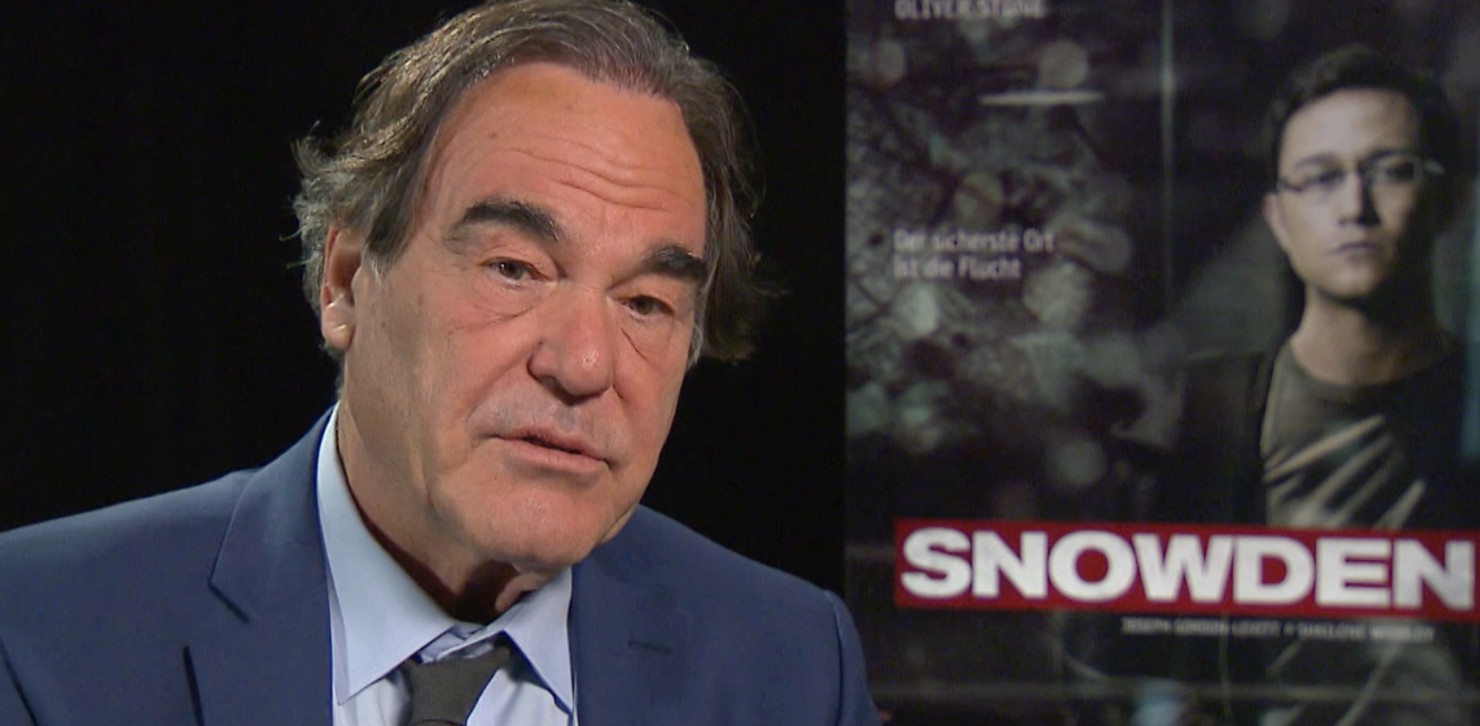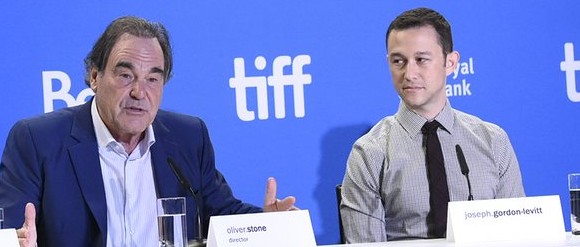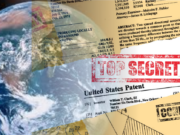 Oliver Stone promoting his film “Snowden”
Oliver Stone promoting his film “Snowden”
by Dee McLachlan
On Christmas afternoon I watched “Snowden,” the movie directed by Oliver Stone. I’m a fan of some of Oliver Stone’s films, but this has to be, in movie terms, his most pedestrian. It felt like a documentary.
But that said, it was good to be reminded of Snowden’s “unprecedented treachery.” At least that is how Australia’s Foreign Minister, Julie Bishop, described his actions.
The Guardian reported Ms Bishop as branding the National Security Agency contractor-turned-whistleblower, a “traitor,” but in the same breadth, she also welcomed moves in the US to review intelligence gathering.
My question to Ms Bishop: Are all whistle-blowing actions treacherous? What is the line between “traitorous” and “serving the people”? How do we distinguish what is the right thing to do when there is government malfeasance? Is it wrong to report it?
Well in Australia, you could be behind bars if you do so.
My article on “Teetering Towards Totalitarianism” explains that politicians in Australia passed laws that can imprison journalists for up to 10 years — for simply doing their job. The law is designed to silence voices, and punish truth-tellers to conceal government’s actions from the public. This is not (all) about fighting terrorism.
George Bush said after 9-11, “Either you are with us [those who embrace freedom], or with the enemy.”
We really do have to ask that question of those sitting in Canberra.
But back to Snowden.
 Oliver Stone with actor Joseph Gordon-Levitt at the Toronto film festival
Oliver Stone with actor Joseph Gordon-Levitt at the Toronto film festival
Let me quote Snowden’s dialogue from the movie, as he is being interviewed:
“NSA wanted to impress the Japanese. Show them our reach. They loved the live video from drones… They were not as excited about [the fact that] that we wanted their help to spy on the Japanese population. They said it was against their laws. We bugged the country anyway, of course. And we did not stop there. Once we had their communications we continued with the physical infrastructure. We sneaked into small programs in their power grids, dams, hospitals. The idea was that if Japan one day was no longer an ally, we could turn off the lights.
“And it was not just Japan. We planted software in Mexico, Germany, Brazil, Austria. China, I can understand. Or Russia or Iran. Venezuela, okay. But Austria? We also followed the majority of world leaders and major industry leaders. Followed trade, sex scandals, diplomatic messages, to give the United States an advantage in G8 negotiations, or something to press a Brazilian oil company. Or help to set aside some leaders in the Third World.
“In the end, the truth sinks in, that no matter what reason you give yourself so it’s not about terrorism. Terror is the excuse. This is about economic and social control.”
This begs the question: What about the NSA (US National Security Agency – remember Brzezinski?) doing at Pine Gap in Australia?

You can be assured that the facility with its thousand plus employees working in secret underground can access anything in your life. And as Snowden claims, “This is about economic and social control.”
Again I ask Ms Bishop: Do you know what they are doing down there at Pine Gap? Of course you don’t. Maybe you need a traitorous whistle-blower to tell you whats going on.
As I wrote before:
“…Unaccountable spy agencies (and the corporate or military entities enmeshed in this) have a complete and overwhelming advantage of – they’ve never been taken over or superseded. They now can (by spying) outmaneuver or crush any competition or dissenting voice.”
But back to the movie and its filmmaker.
Oliver Stone and Edward Snowden
The movie does seem one sided, and Snowden is portrayed “with the aura of a holy martyr.” He flew to Hong Kong on May 20 after telling his bosses that he needed to undergo tests for epilepsy, and on June 2 checked in at the Mira Hotel in Hong Kong, where he later gave the documents to reporters Laura Poitras and Glenn Greenwald.
There is a stinging review of the film and of Snowden by Fred Kaplan in Slate.
Before writing for Slate, Kaplan was a correspondent at the Boston Globe, and has authored several books on military strategy.
Kaplan writes:
“…Snowden’s documents bore no resemblance to whistleblowing as the phrase is broadly understood.
“Whatever one’s views of U.S. foreign policy in those parts of the world, these activities are legitimate aspects of the NSA’s charter, which involves intercepting communications of foreign powers. They have nothing to do with domestic surveillance or spying on allies. Exposing these intercepts is not whistle-blowing: It’s an attempt to blow U.S. intelligence operations.” [Really? He exposed domestic spying]
Stone’s film makes out that Snowden was a rising star, but as Kaplan writes:
“…officials have told me that he [Snowden] didn’t quit the CIA; he was fired… Another says he was caught doing what he later did in Hawaii—prowling around files where he had no business prowling.
“Another story omitted from the movie: …Snowden gained access to some of the documents he took by persuading 20 to 25 of his colleagues to give him their logins and passwords, saying he needed the information to check on some technical problems.”
Now that would have made a much better film — having a flawed protagonist.
Oliver Stone did a disservice to the story, trying to spoon feed us. What Snowden exposed is self evident.
But let me quote Snowden, as I did in a Gumshoe article:
“If I am a traitor, who did I betray. I gave all of my information to the American Public. To American Journalists who were reporting on American issues. If they see that as treason, I think people really need to consider who do they think they are working for. The public is suppose to be their boss, not their enemy.”
Right or Wrong
I go back to Julie Bishop’s “unprecedented treachery” quote, and the basic principal of exposing wrongdoing.
It forces us to answer these questions:
- What is being done in secret that is not in the interests of the people?
- Should government crime go unreported and unpunished?
- And should those exposing it be punished?
So for me, I accept that Snowden is a flawed person — as most of us are. He should be removed from the equation, so that the facts can be laid bare.
I hope Oliver Stone keeps making political movies, but there is one thing that worries me about this film and the filmmaker.
Stone has the intelligence to interrogate almost anything — but he seems to have blinkers on when it comes to 9-11. All very convenient for a director with a brilliant career.
At the end of the film, the real Edward Snowden appears in his Moscow home. His last words are:
“When I left Hawaii, I lost everything. I had a stable life, stable love, family, future. And I lost that life, but, I’ve gained a new one, and I am incredibly fortunate… ”
He is fortunate. He would be rotting in a jail somewhere like Bradley/Chelsea Manning.
To quote Oliver Stone (at a press conference):
“Americans don’t know anything about it because the government lies about it all the time…”






























Dog with bone, dog with bone, dog with bone.
Goodonya, Dee.
Any visitor who does not ken the dog-with-bone concept, please press the “media” button at top of Gumshoe’s website.
Editor Dee doesn’t know when to give the whole thing a rest.
Thank God.
If Mathew the tax collector hadn’t been a flawed person he would never done what he did either. Likewise John Kiriakou
https://www.youtube.com/watch?v=wlJO1uL1CsE
Thanks for posting this.
About a CIA whislteblower. And it’s great to discover Paul Jay’s Youtube channel on “real news.”
Thought your post was pretty interesting! Just posted it here:
https://pulsepolicy.com/2017/01/19/chelsea-manning-the-u-s-policy-on-leaking/